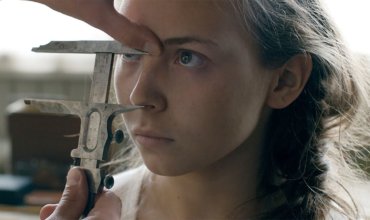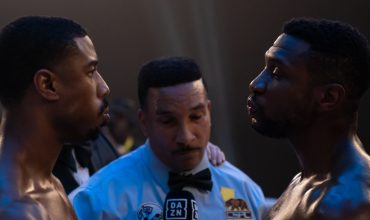Hector (Simon Pegg) is a successful London psychiatrist whose life seems good, until the day he realises that he is deeply unhappy. He feels like a fraud who doesn’t have the life experience to help his patients. So he decides to help them and himself by taking a journey around the world to search for happiness. What makes others happy? he wonders. Leaving his practice for a while isn’t as difficult as leaving his long-time girlfriend Clara (Rosamund Pike). Their relationship had seemed solid and stable, but now they’re not so sure. Clara finds an old photograph in Hector’s sock drawer that shows him with his old flame Agnes (Toni Collette). She assumes that his search has something to do with her.
Hector begins his journey in China and meets an ultra-rich businessman Edward (Stellan Skarsgård) and spends the night with an expensive callgirl Ying Li (Ming Zhao). This being a movie about spiritual uplift, this scenario isn’t quite as it sounds. Hector then goes to a monastery in the mountains where he feels that he glimpses happiness and then loses the trail.
On every step of his journey, Hector fills in a travel diary given to him by Clara. In it, he attempts to summarise the “rules for happiness” as expressed by the random people he interacts with. He also illustrates his journey with line drawings which lead to short animated sequences that sometimes stand in for travelogue. These are part of a Gondry-lite visual package that the director Peter Chelsom uses in order to evoke extreme whimsy. I’m all for whimsy, I would even say I’m a flippin’ fool for cimematic whimsy, but it has to say something more than it does in this movie. Here, we get a yellow bi-plane and a boy actor portraying Hector’s inner child. Only young Hector’s super-cute pug dog saved these moments for me and if you’re not a dog lover, then you’re on your own. In fact, in the first half of the film, I often doubted whether I could make it to the end, such were the stereotypes presented to us (e.g. happy third-worlders speaking in ready-made quotes for Hector’s diary). However soon after he visits his old college friend in Africa, the tone shifts and I felt Hector and the movie snapped into emotional focus. Hector gets a glimpse at what it’s like to face death and this is his first step towards seeing the world and his life more clearly.
This film has copped a critical drubbing. It has been thrown into the same category as EAT PRAY LOVE (incorrect) and Ben Stiller’s THE SECRET LIFE OF WALTER MITTY (more correct), however I think First Worlders with Problems are a soft target for critics. The moment human beings sort out their food, shelter and protection problems, then inevitably we look inward and don’t necessarily like what we see. Any author or filmmaker who addresses the questions of what makes us happy and does it in an accessible way risks being the subject of snark and derision. Do it in an oblique and inaccessible way and you might just be described as an artist. Looking online there seems a fairly clear split between critics and moviegoers on this one. Critics tend to hate this film for being smug, safe and schmaltzy. Ordinary moviegoers are more likely to find it inspiring and entertaining.
We all must find out what makes us happy, is the uncomplicated thing this film is saying. Hector never tries to answer the question for anyone but himself, but he gives it a red-hot go. Cliche or not, many of us do not know what makes us happy, and thus this is a proper subject for the cinema. Inspiration and uplift isn’t only the territory of arthouse filmmakers or Frank Capra movies from the 1940s.
HECTOR AND THE SEARCH FOR HAPPINESS is in limited release in Australia. It runs for 114 minutes. My rating is 6/10.


